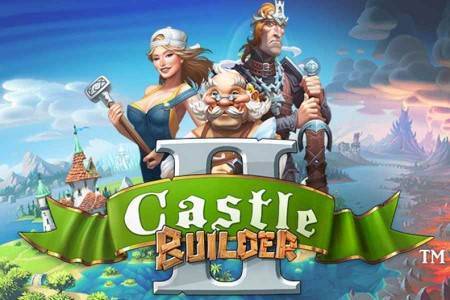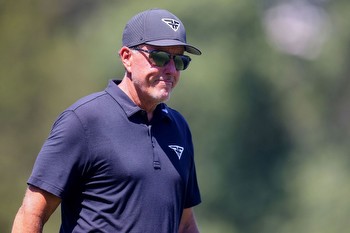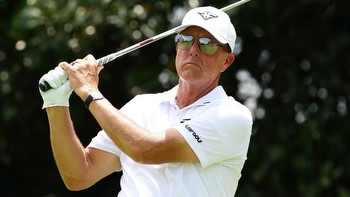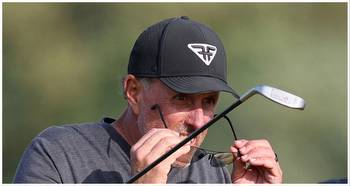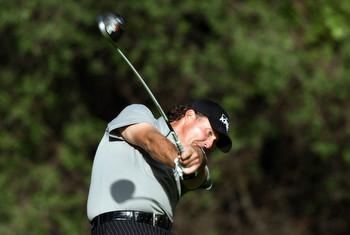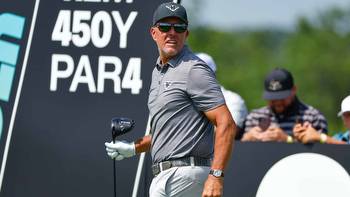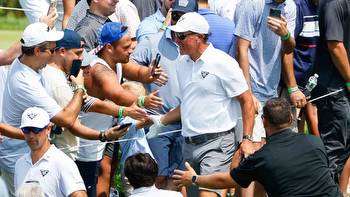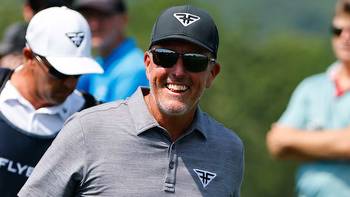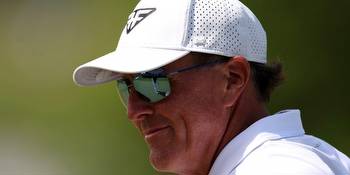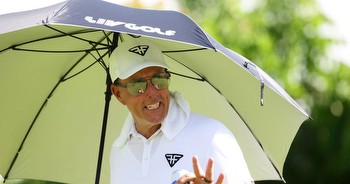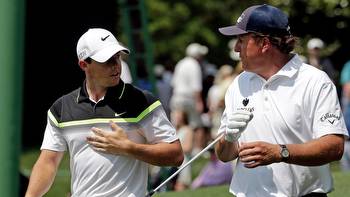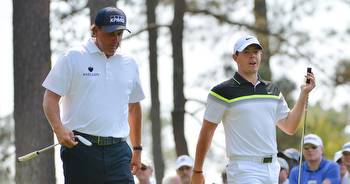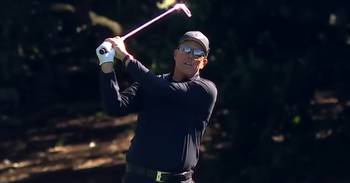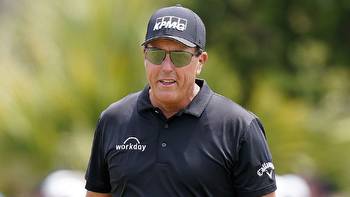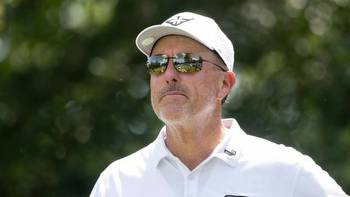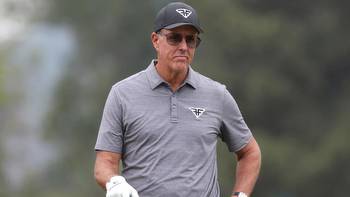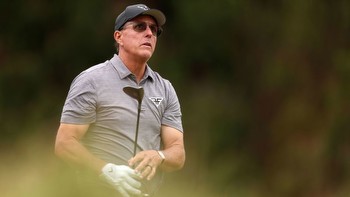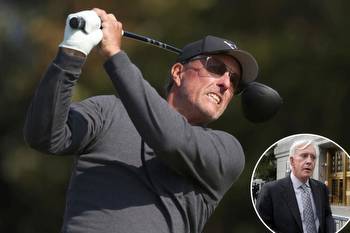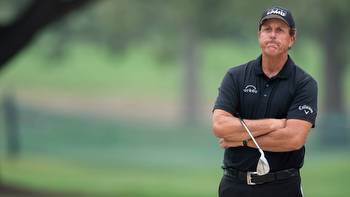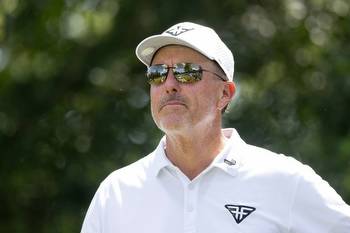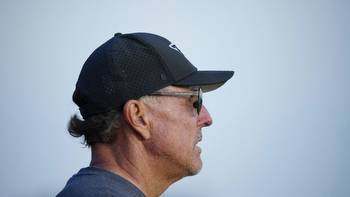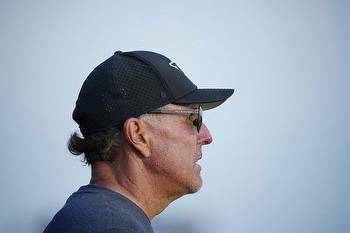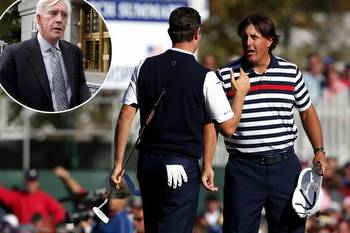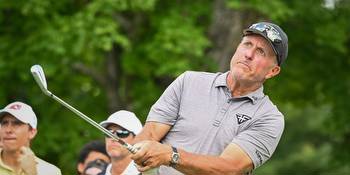Lynch: Phil Mickelson’s gambling is a problem for all of golf
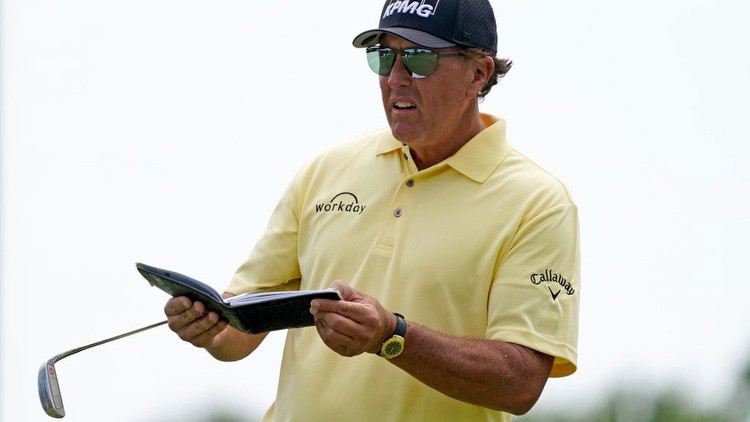
The claims leveled by Billy Walters about the gambling habits of Phil Mickelson can hardly be considered damaging to the six-time major winner’s reputation, chiefly because there’s no character left to impugn in a man who said he would overlook the murder of gays, the dismemberment of a journalist and sundry other human rights abuses in exchange for leverage over the PGA Tour. But the issues raised by Walters do constitute a reputational risk that others in golf would be advised to consider.
Walters’ memoir, “Gambler,” comes out later this month. In an excerpt published on Fire Pit Collective, the infamous Las Vegas bettor plays hardball with his ex-friend and gambling partner, and he appears to be armed with forensic receipts. His claims are strikingly specific, including the total number of bets Mickelson placed in 2011 (3,154), the amounts wagered, and the date (June 22) on which he placed 43 bets on MLB games that resulted in losses of $143,500.
“Based on our relationship and what I’ve since learned from others, Phil’s gambling losses approached not $40 million as has been previously reported, but much closer to $100 million,” Walters wrote. “In all, he wagered a total of more than $1 billion during the past three decades.”
Mickelson has publicly acknowledged his gambling addiction. It is a private matter for him and his family. But only until it intersects with his professional life. Walters has not yet suggested that Mickelson gambled on golf tournaments but alleges he wanted to. He recounts a phone call during the 2012 Ryder Cup in which he says Mickelson wanted to place $400,000 on the U.S. team to win, which it ultimately did not. Walters writes that he was aghast at the idea of a golfer gambling on events in which he was competing, and doesn’t know if Mickelson ever actually placed the bet.
Given the specificity of Walters’ account of their shared exploits, Mickelson was warily broad in his response.
“I never bet on the Ryder Cup. While it is well known that I always enjoy a friendly wager on the course, I would never undermine the integrity of the game,” he wrote on social media.
It demands considerable generosity of spirit to accept that a confessed addict who bet enormous sums on multiple sports, running up huge losses in the process, drew the line at betting on his own sport, in which he had access to inside information gleaned in the locker room or even the ability to impact outcomes. Has Mickelson earned that benefit of the doubt? The hell he has.
When he moved to LIV Golf last year for a reported nine-figure sum, Mickelson insisted with characteristic insincerity that he was motivated by growing the game and seeing players fairly compensated, not any financial need. He recently made clear that he has no desire to return to the PGA Tour, regardless of how negotiations with LIV’s Saudi backers pan out. But the fact that commissioner Jay Monahan has no jurisdiction over him shouldn’t matter.
The reputation of golf, and the integrity of its competitions, must be of concern to all stewards of the game. The issue presented here is not the PGA Tour’s alone. It extends to the PGA of America, the USGA, the R&A and the Masters — organizations that run events in which Mickelson continues to compete. Golf’s stakeholders have an obligation to investigate if one of the sport’s greats wagered on tournaments in which he played and to what extent, if any, those events were compromised or corrupted.
Hopefully, he didn’t and they weren’t, but that can’t be left to his word.
Much as golf likes to pat itself on the back about values and integrity, it is no less susceptible to nefarious conduct than any other major sport. Studies have shown that hundreds of soccer matches in Europe were fixed. Tennis had to establish an “Integrity Unit” to address a “tsunami” of corruption. Tim Donaghy, a mob-affiliated NBA referee, bet on games he officiated for several seasons and tipped inside information to associates. He was exposed in a separate FBI investigation, but the case still demanded a policy response by the NBA, which hired an outside law firm and ultimately established guidelines on gambling and the monitoring of officials.
If there’s evidence that any golfer gambled in a manner that compromised tournaments, that is criminal fraud and it also undermines the very bond between fans and their sport. Ensuring authentic, fair competition is the duty of every organization in golf. Golf’s reputational standing has always been its greatest asset. It ought to be reinforced with transparency rather than left to exist under a stench of suspicion because you can bet fans are wondering if Mickelson really drew the line where he says he did.
